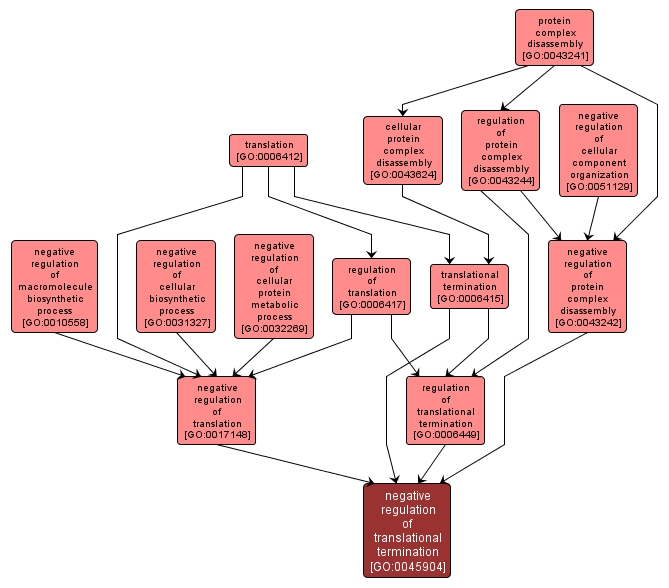GO TERM SUMMARY
|
| Name: |
negative regulation of translational termination |
| Acc: |
GO:0045904 |
| Aspect: |
Biological Process |
| Desc: |
Any process that stops, prevents or reduces the frequency, rate or extent of translational termination. |
Synonyms:
- downregulation of translational termination
- down regulation of translational termination
- down-regulation of translational termination
- inhibition of translational termination
|
|

|
INTERACTIVE GO GRAPH
|














